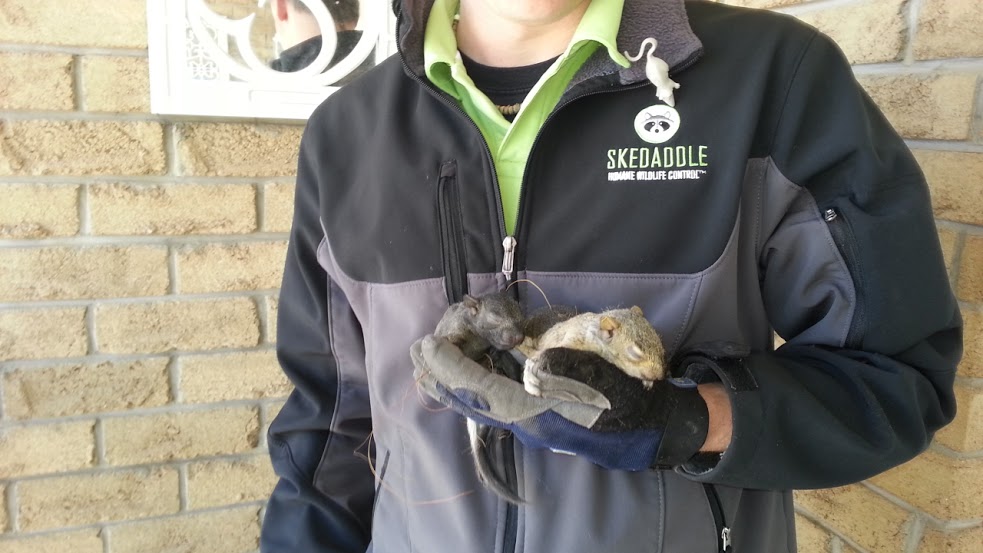Although squirrels are cute and can be fun to watch, it’s best to keep your distance. Just like most wild animals, squirrels carry various diseases that may also be transmitted to humans. Because there are so many squirrels in this area, human and animal encounters may be more likely. At Skedaddle Humane Wildlife Control, we can help you and your family avoid dangerous squirrel diseases by addressing problems with these critters on your property. Avoid attempting to remove squirrels on your own so you don’t expose yourself to harmful pathogens or germs they may carry. Here are some details about three diseases these animals carry.
Squirrel Diseases – Harmful to Humans
When squirrels are sick or carrying germs, they may not appear ill or in distress, so it’s important to always assume wildlife may be carrying harmful diseases and keep your distance. Just like humans, squirrels can catch different illnesses and get sick. Not all of these illnesses are transmittable to humans.
Squirrels may also be carrying different parasites from fleas, ticks and mites that hitchhike on their fur. The parasites that attach to squirrels may also transmit bacteria and disease to them, such as Rocky Mountain spotted fever or Encephalitis. If you’re wondering, are squirrels dangerous? It depends. Here are three diseases they carry that could be dangerous to humans.
1. Salmonellosis
The first problematic pathogen that squirrels may be carrying is salmonella. Exposure to salmonella could lead to a salmonellosis infection. The bacteria is most commonly found in animal droppings, so if there is a lot of squirrel activity in your yard, you may be at risk.
A salmonellosis infection could cause abdominal pain, diarrhea, vomiting, fever or chills. Some people may develop serious complications from this type of infection, especially older people, infants and people who are immunocompromised. Connect with us for squirrel removal if you notice squirrel droppings in your yard.
2. Lyme Disease
The next pathogen on the list that squirrels may be carrying is Lyme disease. This disease is mostly transmitted by ticks. Small ticks are commonly found on most mammals in the area, including squirrels. Ticks may detach from squirrels and hide out in your yard, posing a risk to you, your pets and your family.
Lyme disease causes a long list of symptoms in humans. When someone first gets the disease, they may notice a bullseye rash where the tick attached and bit them. They may also experience flu-like symptoms and long-term symptoms, such as nerve pain and inflammation.
3. Rabies
One of the top questions customers ask is, do squirrels carry rabies? The truth is, like any mammal, squirrels could possibly carry rabies, although it’s rare. A rabid squirrel could transmit a rabies infection to a human through a bite or a scratch.
Rabies infection is 100% fatal. If you or someone in your family is bitten or scratched by a squirrel, it’s vital to seek immediate medical attention. By the time someone experiences symptoms of rabies, such as a fever, headache or discomfort, it is already too late. The best way to prevent problems is prevention with Ottawa animal control.
Let Us Help You Solve a Squirrel Problem

A squirrel infestation in your home or on your property can lead to more than just property damage. These creatures may be carrying diseases that could be dangerous or deadly. If you think you need squirrel removal, reach out to the pros at Skedaddle Humane Wildlife Control to avoid the risk that comes with handling wild animals yourself. Our team can equip themselves with protective gear to keep them from being at risk.
Skedaddle Humane Wildlife Control uses a proven process to inspect homes and remove animals like squirrels safely. We use our extensive knowledge of animal behaviours and the wildlife in the Ottawa area to help homeowners keep critters out of their properties.



